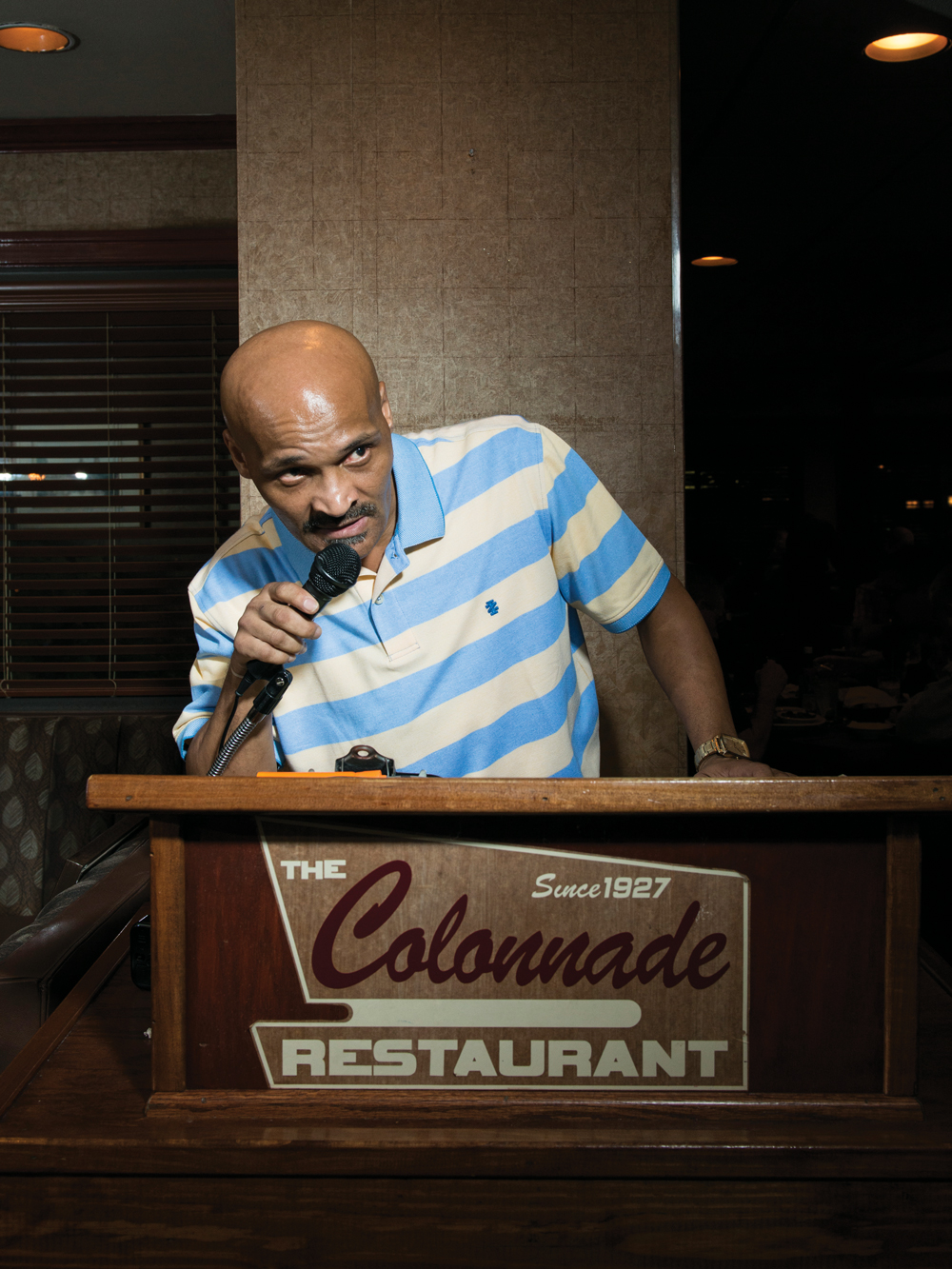
Photograph by Caroline C. Kilgore
“Bernadette, party of four,” Randell Stenson swings a matte black microphone closer to his lips. “Bernadette.” Stenson’s chipper but fluid voice has been ushering in diners at the Colonnade restaurant for about 30 years now.
“Andrew, party of two, please.” Two middle-aged men in khaki shorts and button-down plaid shirts make their way to the wooden podium, playfully needling Stenson about something or other as he crosses “Andrew” off of the list of names running down his yellow legal pad. He gives up a modest smile.
In the dining room, longtime customer Micki Slaton is slipping chef Ryan Cobb a five-dollar bill. “If I cook her chicken livers right, she gives me $5, every time,” says Cobb. “Fried chicken livers or fried tilapia, that’s her order.” On the other end of the unpretentious 165-seat room is former U.S. Senator Max Cleland, who takes his supper at the Colonnade two or three nights a week, tucking into some warm yeast rolls. At the bar, a few couples, some straight, some gay, as well as one man wearing a blue sundress, order Randy Ritas, top-shelf margaritas named for a beloved regular. “Oh, they know they can come in here dressed like women and no one bats an eye,” says bartender Jay Skinner.
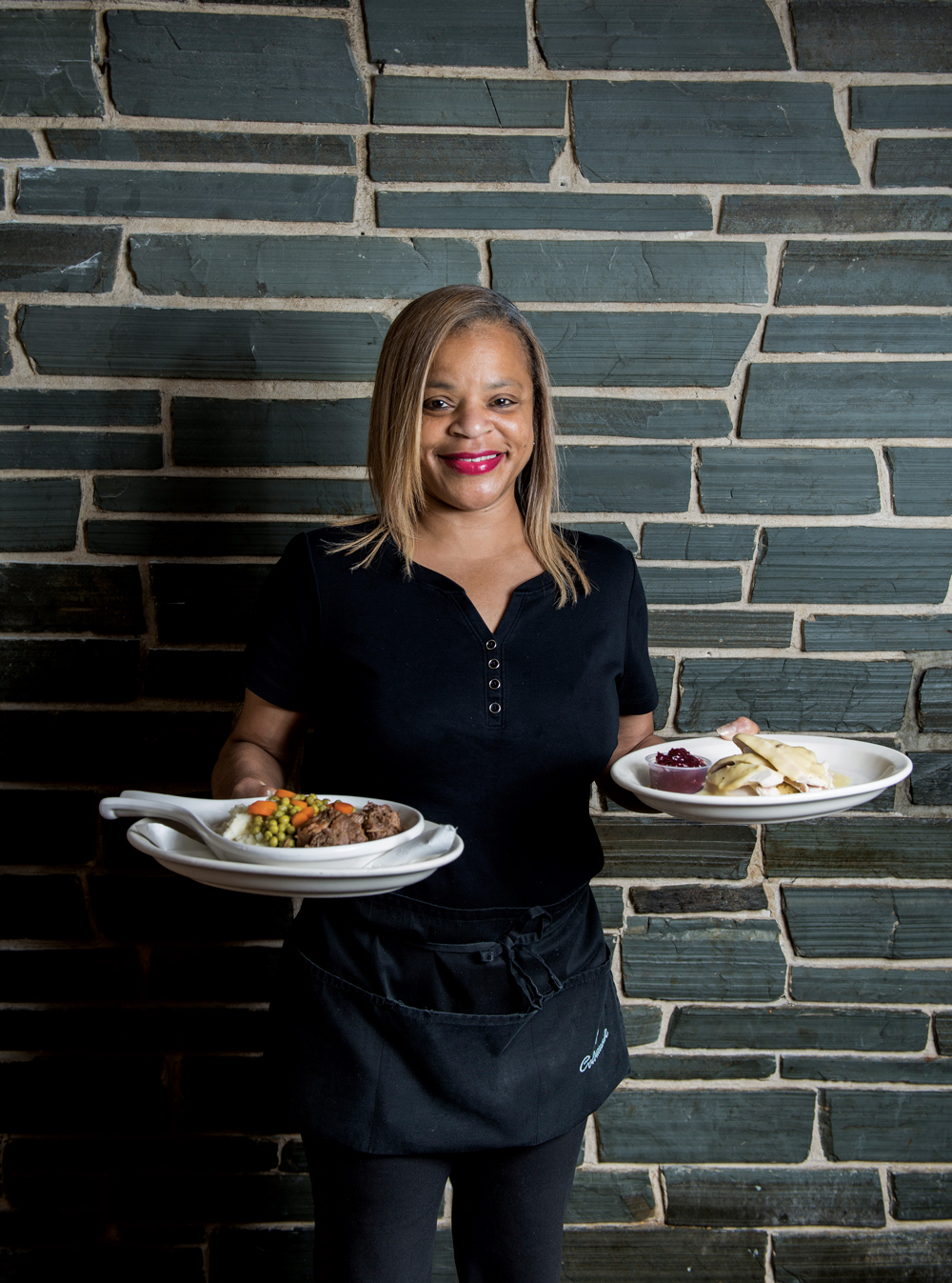
Photograph by Caroline C. Kilgore
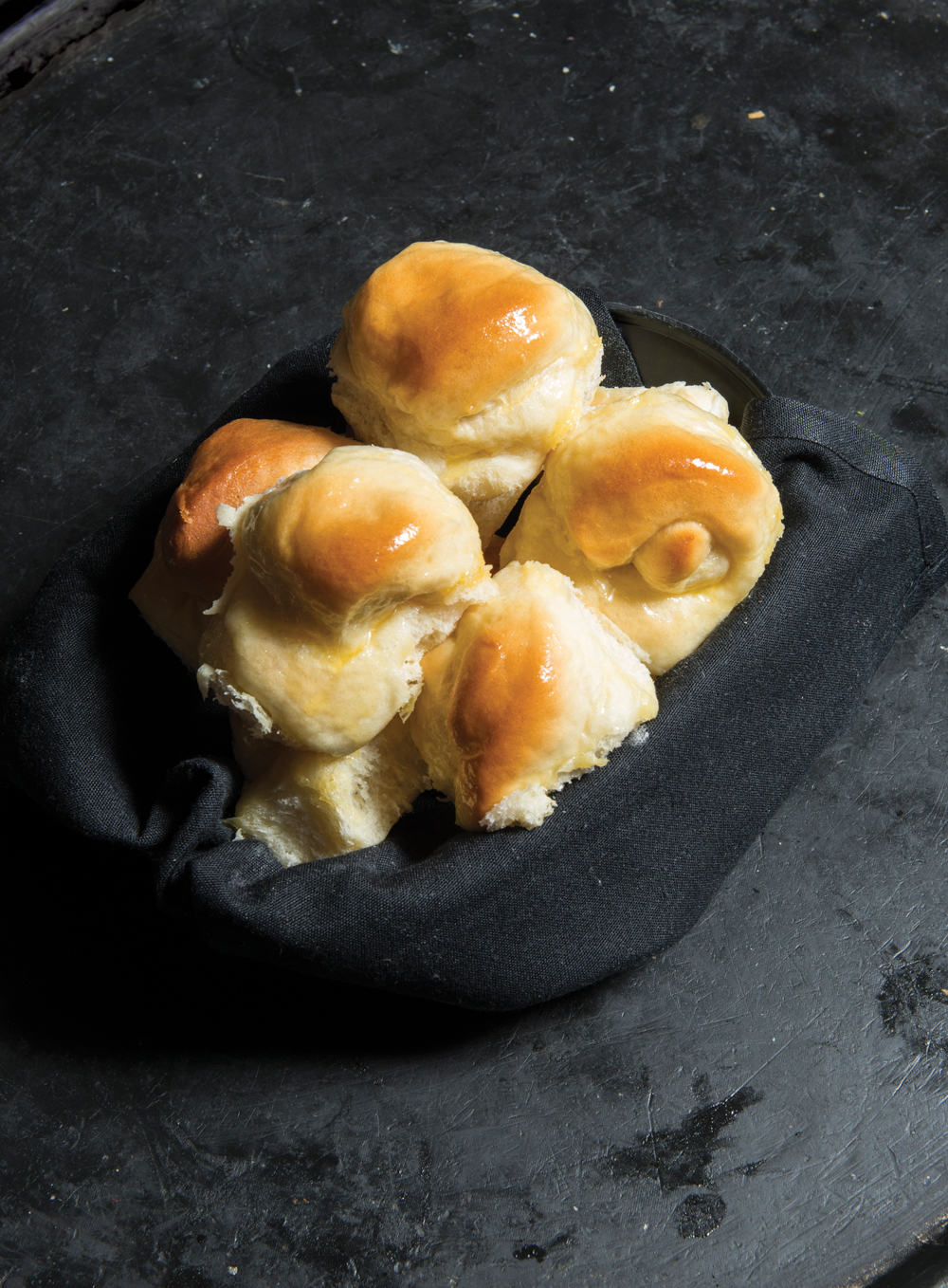
Photograph by Caroline C. Kilgore

Photograph by Caroline C. Kilgore

Photograph by Caroline C. Kilgore
This is Friday night at the Colonnade, an old-school Southern restaurant that still serves turkey and dressing every day of the week and has held its ground on an otherwise fluctuating strip of Cheshire Bridge Road since 1962. Before that, it was located at the corner of Piedmont Road and Lindbergh Drive, where it opened in 1927. Three years ago the restaurant started taking credit cards, but there are still no computers. “There’s no personal service in computerized systems at all,” says Jodi Stallings, whose father bought the restaurant in 1979 and who helps run the day-to-day operations. Somewhere along the way, the Colonnade got the nickname “Gay and Gray,” because its customer base was said to be made up of mostly gay men and senior citizens, but Stallings says that’s not entirely accurate.
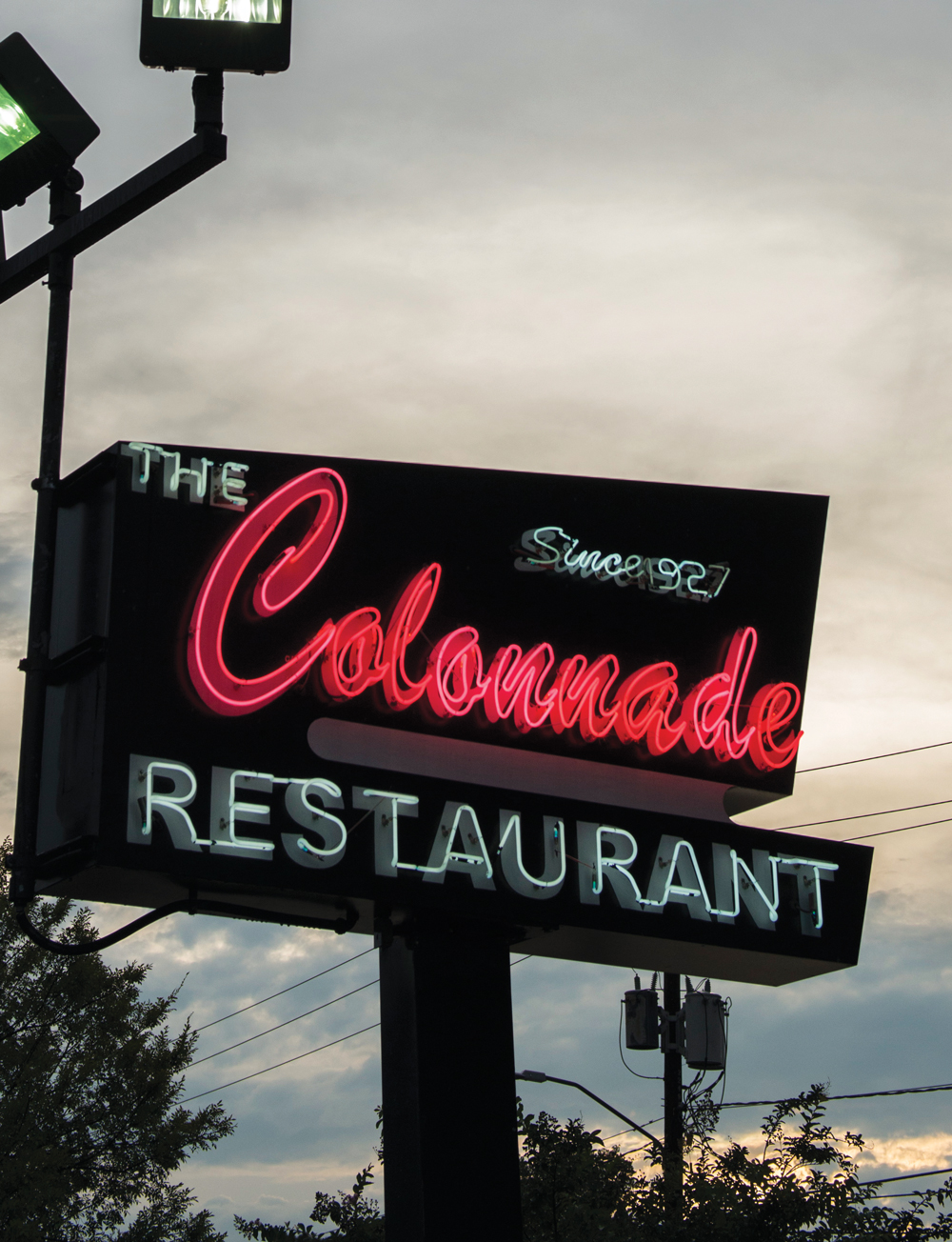
Photograph by Caroline C. Kilgore
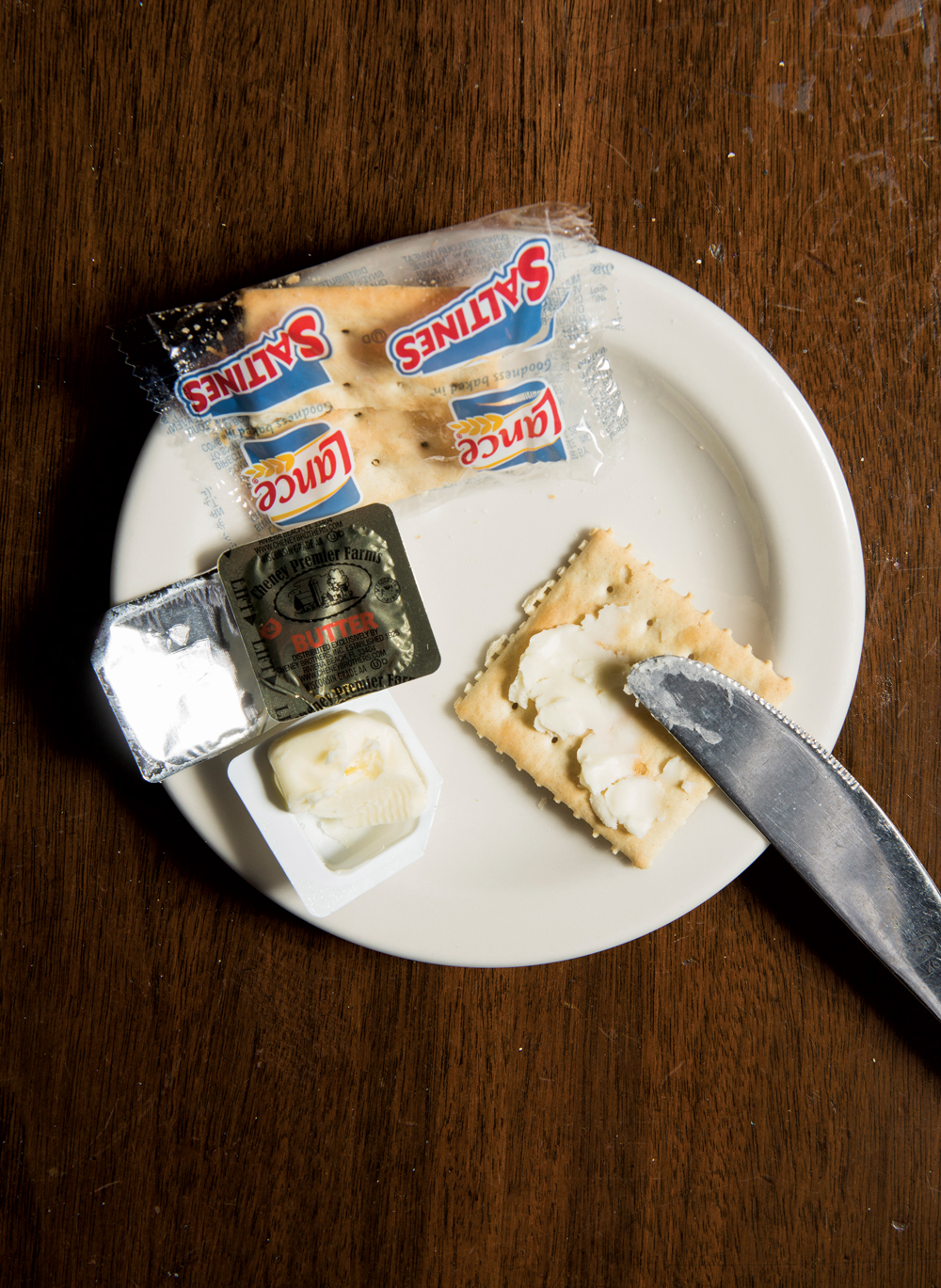
Photograph by Caroline C. Kilgore
Many of the Colonnade’s existing customers—gay, gray, or neither—come here for comfort of two kinds: a good meal and good company. “You know, customers will go visit these new places that open up, and they might go a time or two,” says Rhea Merritt, another bartender. “But you know where they come back to? They come back to the Colonnade.” Here’s the story of this much-loved Atlanta institution, told by the people who know it best, on its 90th birthday.

Photograph by Caroline C. Kilgore
Ryan Cobb
Executive chef, age 41
I had never done anything but high-end fine dining before I came here a little over 11 years ago. It’s the first place where I haven’t had a sous chef. We have a lot of line cooks—Sonya, our most senior line cook, has been here 36 years—and prep cooks and dishwashers, and that’s just it.
When I first took this job I knew that there wasn’t going to be anything done to the main menu, which had been in play for so long, but I had complete creative control over the specials. So I came in headstrong—most chefs kind of have an ego—and really pushed the limit, running crazy things from kangaroo and python to bear and boar. I would walk through the dining room like I had a target on my back. I could just feel the eyes. Diners were nervous, and I was around 29, which was younger than anyone else on staff by at least 10 years. Older regulars were like, “What is this young kid doing? Where’s my ham steak?”
I did get rid of two or three items on the main menu—braised lamb shank, chicken pot pie, the country ham steak—but we still run those on many Sundays. Sunday is still classic Colonnade. I couldn’t sell a special if I tried on Sunday. That’s when people are coming in for the staple food that they’ve grown up with at the Colonnade.
Not too many places serve fried chicken livers anymore. The recipe for our chocolate fudge is the one we’ve used forever and ever and ever. And you would not believe how much we still sell the tomato aspic.
• • •
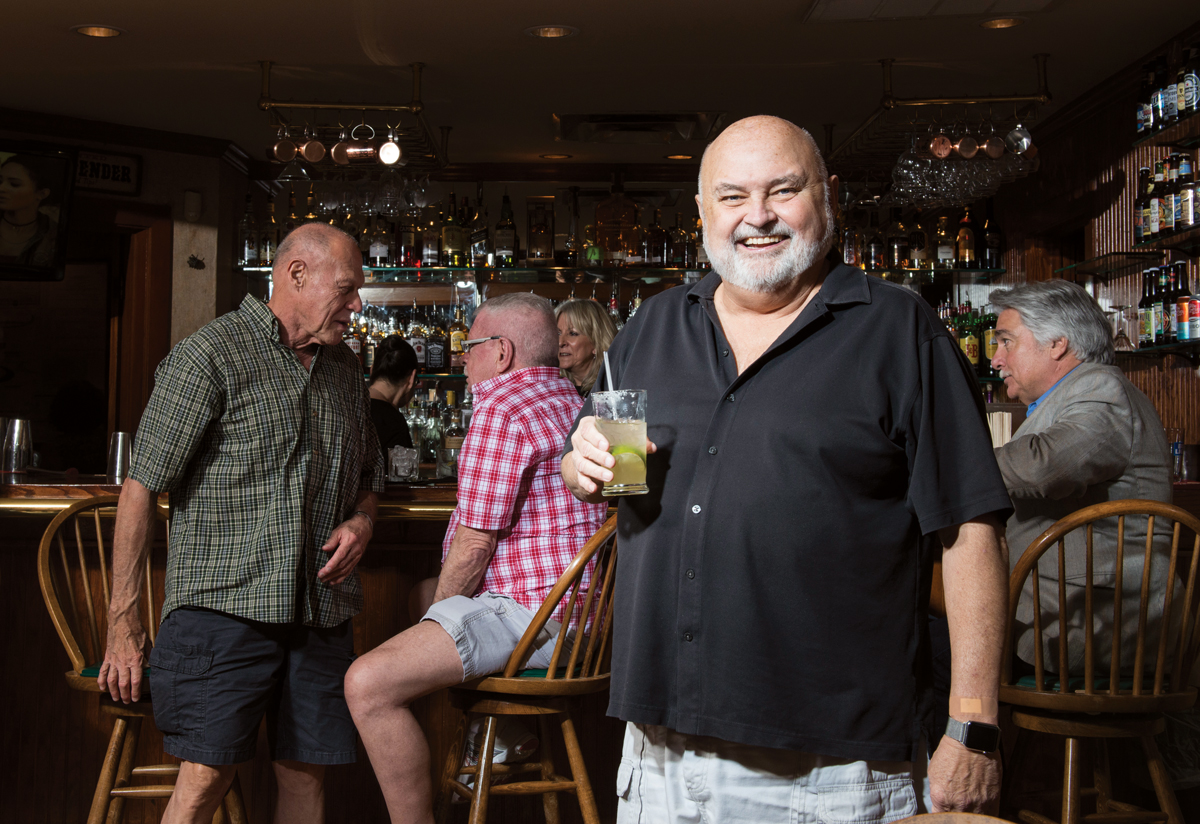
Photograph by Caroline C. Kilgore
Randy Dobbs
Regular, retired educational leadership professor, Georgia State University, age 65
About 20 years ago I first went to the Colonnade for lunch, and I’ve been going ever since, oftentimes two or three nights a week.
I grew up in Decatur, and my mother was a very traditional Southern cook, and a lot of the food at the Colonnade is exactly how Mama would make it. If I order fried chicken, I might take two pieces home, because you get at least a half a chicken, if not more. Also a lot of places do one thing well but maybe not the rest. But at the Colonnade, the comfort food and the seafood and their steaks are really, really good, and Jodi goes to the farmers market to buy most of the vegetables. And they do have a very strong pour, probably the best in the city in terms of your money. Jay probably knows 90 percent of the customers’ drinks as they’re standing in line.
I have some friends who belong to country clubs, but the Colonnade is my country club. There are those of us who meet there every Friday night. That has become a tradition. I always say, “If you go to the Colonnade, you don’t need to go to a bar later.”
One night there was an older lady who had tried to get a taxi several times. I think they had come, and she had missed them. Jay introduced me to her and asked if I would take her home, and I said, “Absolutely.” I took her to her retirement home in Buckhead and helped her all the way up to her room and to get situated. I didn’t know her, but I knew that she was a Colonnade regular.
• • •

Photograph by Caroline C. Kilgore

Photograph by Caroline C. Kilgore
• • •
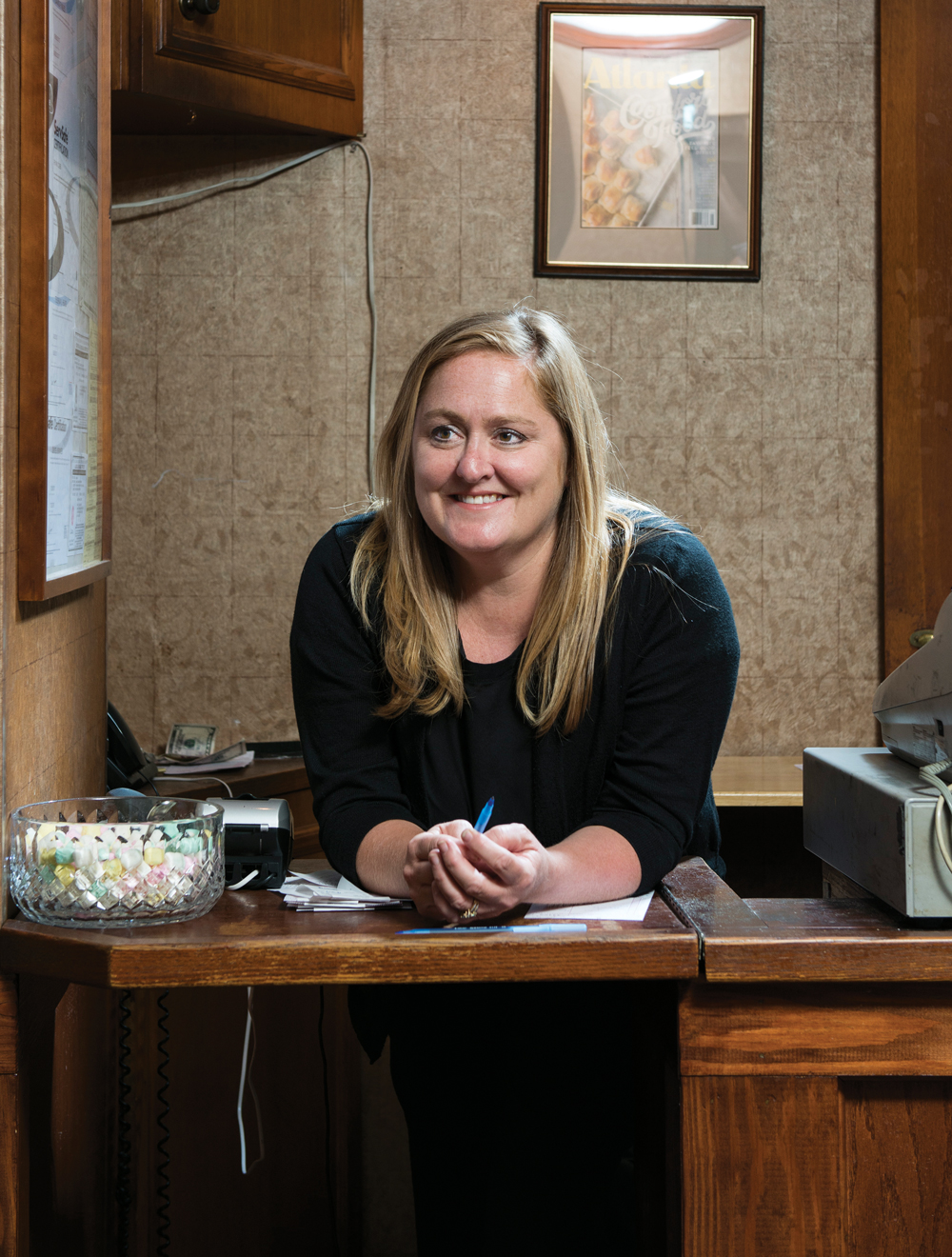
Photograph by Caroline C. Kilgore
Jodi Stallings
General manager and operating owner, age 47
My father, Paul Jones, responded to an ad for this restaurant being for sale in 1979. Jack Clark, who owned it at the time, was very particular. He wanted to make sure that the Colonnade went in the hands of somebody who would preserve it, so he had my dad take him back to small-town Michigan, where my family’s originally from, so that he could meet everyone. Then they came back to Atlanta, and that was it. My dad bought the restaurant when he was 29, and he still owns it at 68. I’ve grown up in this place since I was nine. My husband David works here too.
We used to use Wechsler’s coffee, but then they started distributing through vendors, and it wasn’t as fresh. So for a while, on Saturday and Sunday, I would have different coffee brands lined up for customers, and I had them taste it to determine what was the closest to Wechsler’s. It’s the same thing if we have to change a Chardonnay. We ask the customers that we know are gonna drink it what they like. They’re looking for consistency. If there’s too much salt in the corn, or too much cinnamon in sweet potato soufflé, a customer’s going to tell me that. And I would prefer to fix it than them not come back.
That’s why we don’t have computers. If somebody wants blue cheese on their salad and somebody else wants a crouton, or if someone doesn’t want a cherry in their Manhattan, you simply can’t punch all of that into a computer. You’ve got to communicate. Every bottle of booze on that bar, I can tell you whose name belongs on it. Steve likes Monkey Shoulder, and John likes the Absolut Mandarin. Rob drinks the Baileys, and Fred drinks Basil Hayden’s.
• • •
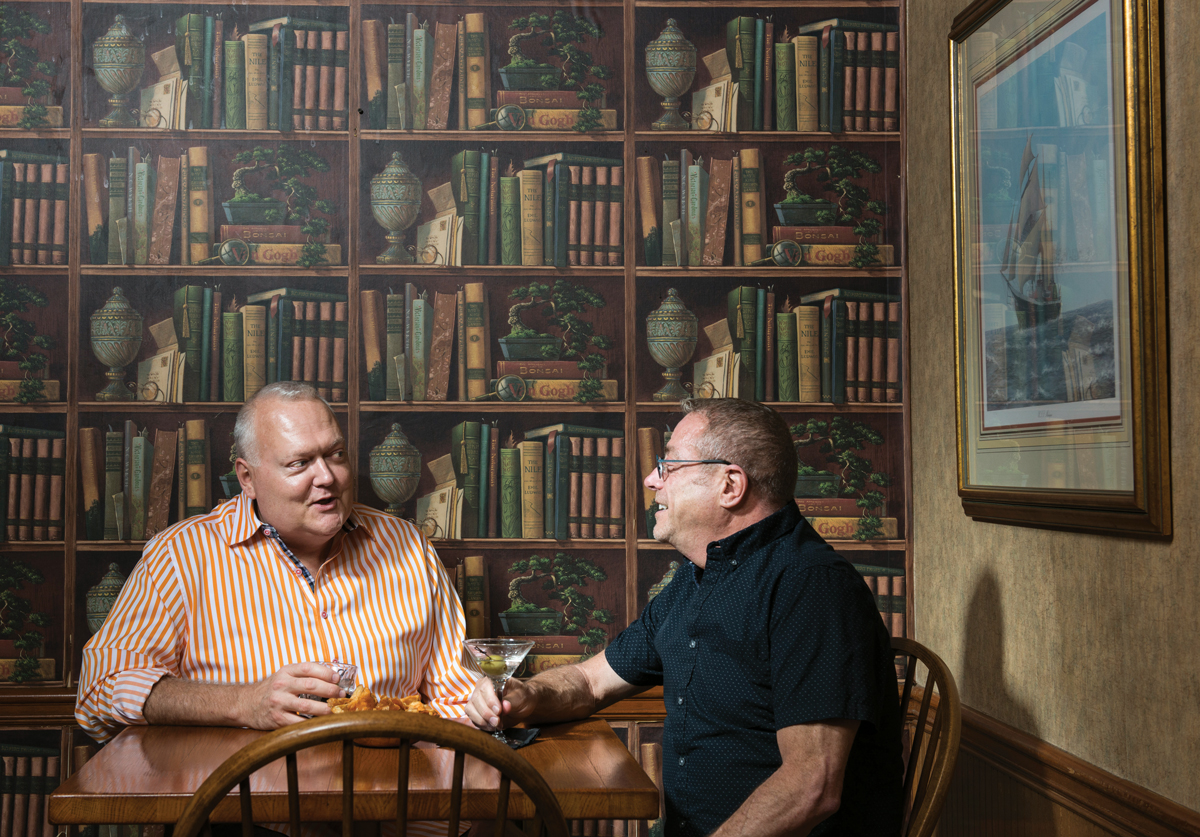
Photograph by Caroline C. Kilgore
Drew Plant
Regular, writer and public relations consultant, Plant Communications, age 51
Our joke is that the Colonnade is gay, gray, and Jewish, and my husband, Bill Golden, is all three.
We started dating in 2001, and I knew we were getting serious when he said, “Okay, you need to come to Colonnade and meet everybody.” And he said, “You know, sometimes it’s just two or three of us.” Well, I swear it was like 12 people the night I came because they all had to check me out.
Four years ago we got married out of town in Palm Springs, but we had kind of a wedding reception back in Atlanta. We had food from the Colonnade, and we hired some of our favorite servers to work the party at our house.
We’re such regulars that whenever there’s a new server, we give Jodi feedback. We say, “Oh, she’s going to be great,” or, “She isn’t going to work.” Like if they get flustered over the Colonnade basics, it’s like, “No, sorry.”
I like having someplace where I know everybody, and that’s what this is. The same people who come on Friday nights always come on Friday nights. It’s definitely an older crowd earlier in the night, and then it starts shifting to the gay crowd, and they all coexist so peacefully.
When I-85 closed, we walked to the Colonnade. We just live about a mile away, but Jodi was so thrilled when we arrived because people were afraid to drive anywhere with all the traffic. She was so happy, she bought us a round of drinks.
• • •
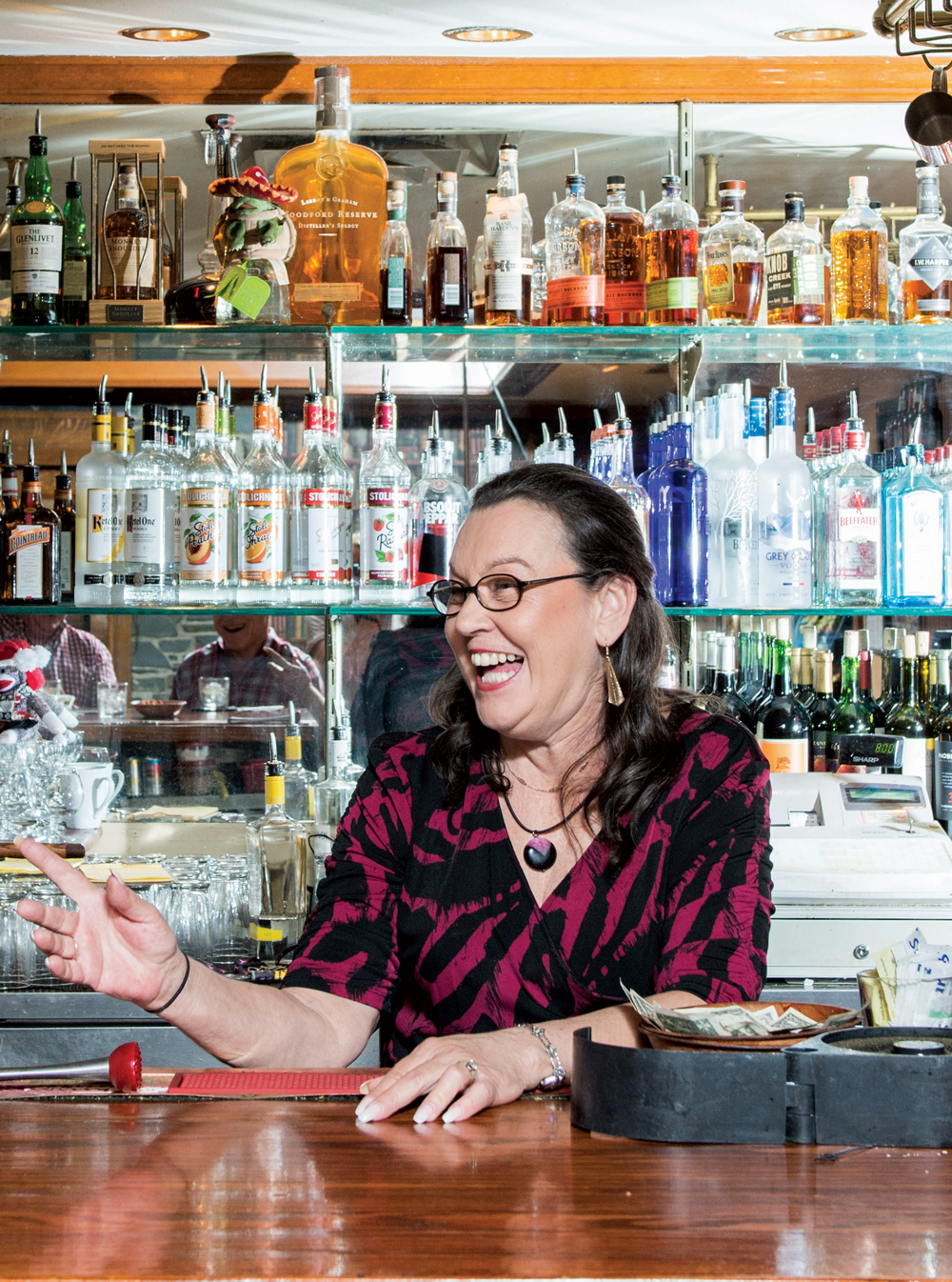
Photograph by Caroline C. Kilgore
Rhea Merritt
Bartender, hostess, and server, age 61
I started working at the Colonnade in 1972 when I was 17 years old. I needed to make money ’cause that’s the way I was raised: When you get to a certain age, you gotta help support. My next-door neighbor Kathy Eberhart worked for the Colonnade and asked me if I wanted a job. I started as a cashier for lunch, then I would host on Saturday night, and then I was a server for years.
I thought I was just gonna hang around for a little while and figure out what else to do—but 45 years later, I guess I know what I’m gonna do! I left once, but after a month or two I was right back. It didn’t feel right. I’m sure eventually I’ll have to retire, but as long as I can carry a tray, I’m not going anywhere. I feel good when I walk in the door; this is what I know. This is what I do: I talk to people, and I help them decide what they want to eat for dinner. I just love it.
Kathy was my mentor. I remember when she’d come home from the Colonnade, the first thing she’d do is polish them shoes, ’cause back then we wore white pleated skirts and white SAS shoes. Kathy’s 87 now, and I talk to her every day. She worked at the Colonnade for 49 years, and then one night, right before her 75th birthday, she fell and broke her collarbone. If it hadn’t been for that, she’d still be there today, I’m telling you.
I even met my husband at the Colonnade. He was a widower; he came in with his brother-in-law one night, and he asked Kathy if she would get my phone number for him. She did, and one thing led to another, and a year later, in 1988, we were married. I had my wedding reception at the Colonnade in the banquet room, and most of the people who came to my wedding were customers from the Colonnade.
• • •
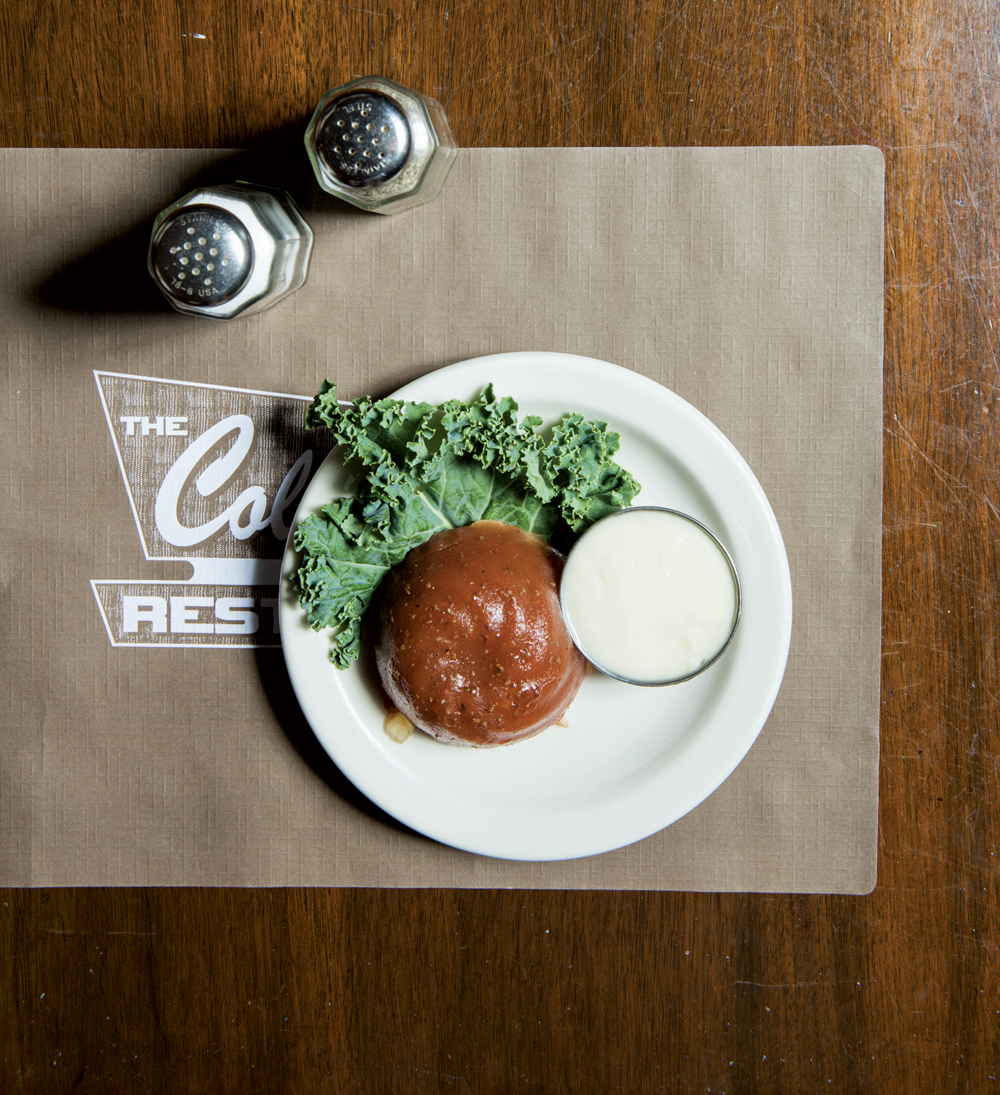
Photograph by Caroline C. Kilgore
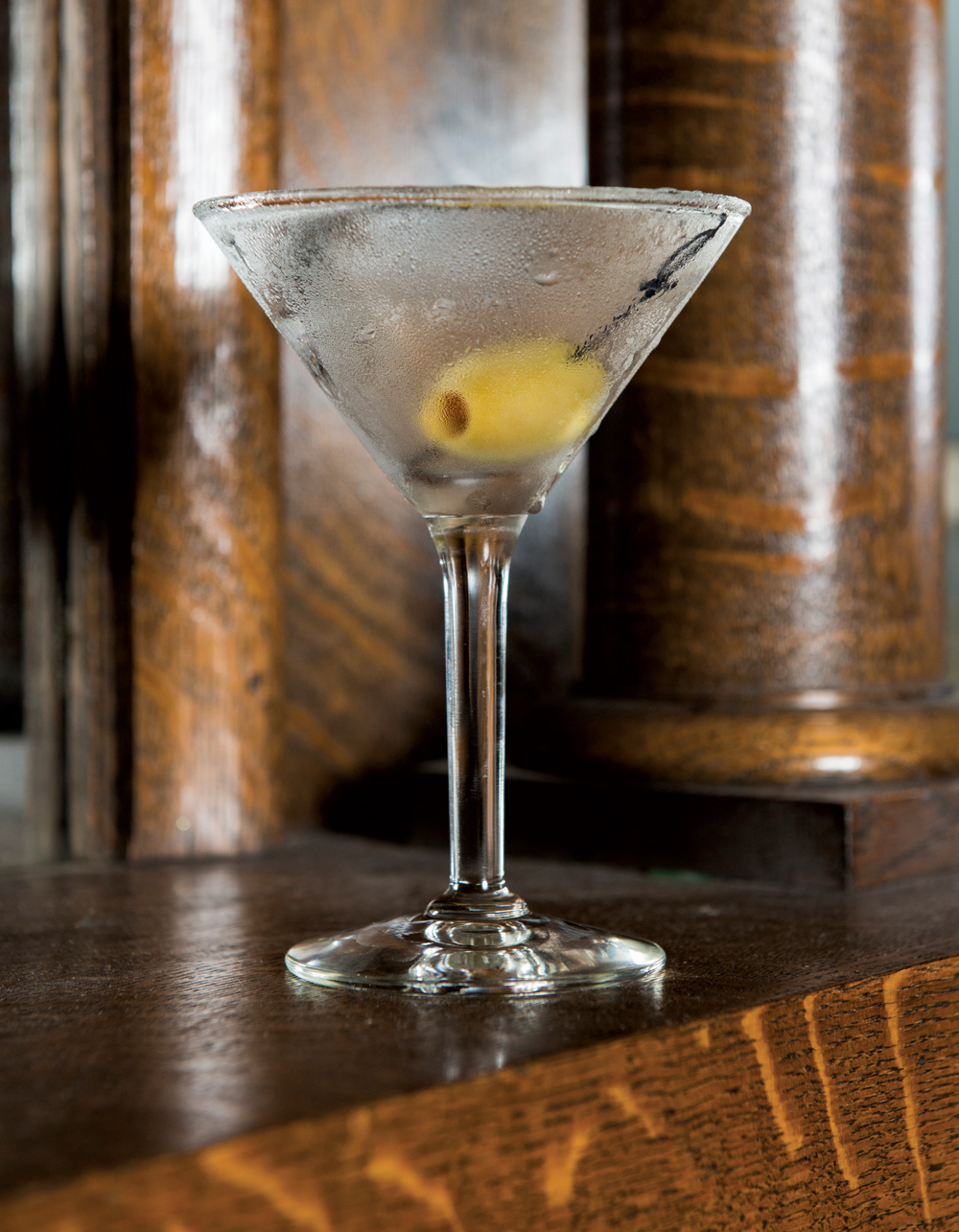
Photograph by Caroline C. Kilgore
• • •

Photograph by Caroline C. Kilgore
Micki Slaton
Regular, accountant, age 87
I first went to the Colonnade in the ’60s, before it was rebottled into the nice place it is now. They didn’t have a lounge back then; they just served drinks out of the kitchen. But now they have a nice bar and lounge, and that’s where I made all my friends.
One day I was sitting at the bar after losing someone I had been close to for 17 years, and my friend Larry said, “Micki, I think you ought to be one of us.” I said, “What?” He said, “We have this little club, the Black Widows.” Each member of the group had lost someone. So I said, “Sure, I’ve been lonely, and I don’t have a buddy anymore.” The name Black Widows was short-lived; we became the Mixed Nuts soon after, because Anne Powell, another member, and I started bringing in a little can of mixed nuts to snack on at the bar.
At the start, we would meet on Fridays at the lounge. We would each put at least two dollars into a membership donation so that, over time, we could build up some money to do something with. We would go places as a group: We went to the Fox Theatre for a Christmas play, and we would go on trips. In 2001 we went to Chicago to watch the Braves and the Cubs. Yeah, we were partiers.
Most of the Mixed Nuts have passed away now, and I don’t get out much anymore because there’s not many people to get out with. But I’ll always remember the Colonnade as the place that I met most of my good friends and loved them and enjoyed them. I still go back occasionally, and before I’ve left, I’ve been hugged about 80 times. I’m emotional, and I like to show it, and that’s just part of me.
• • •
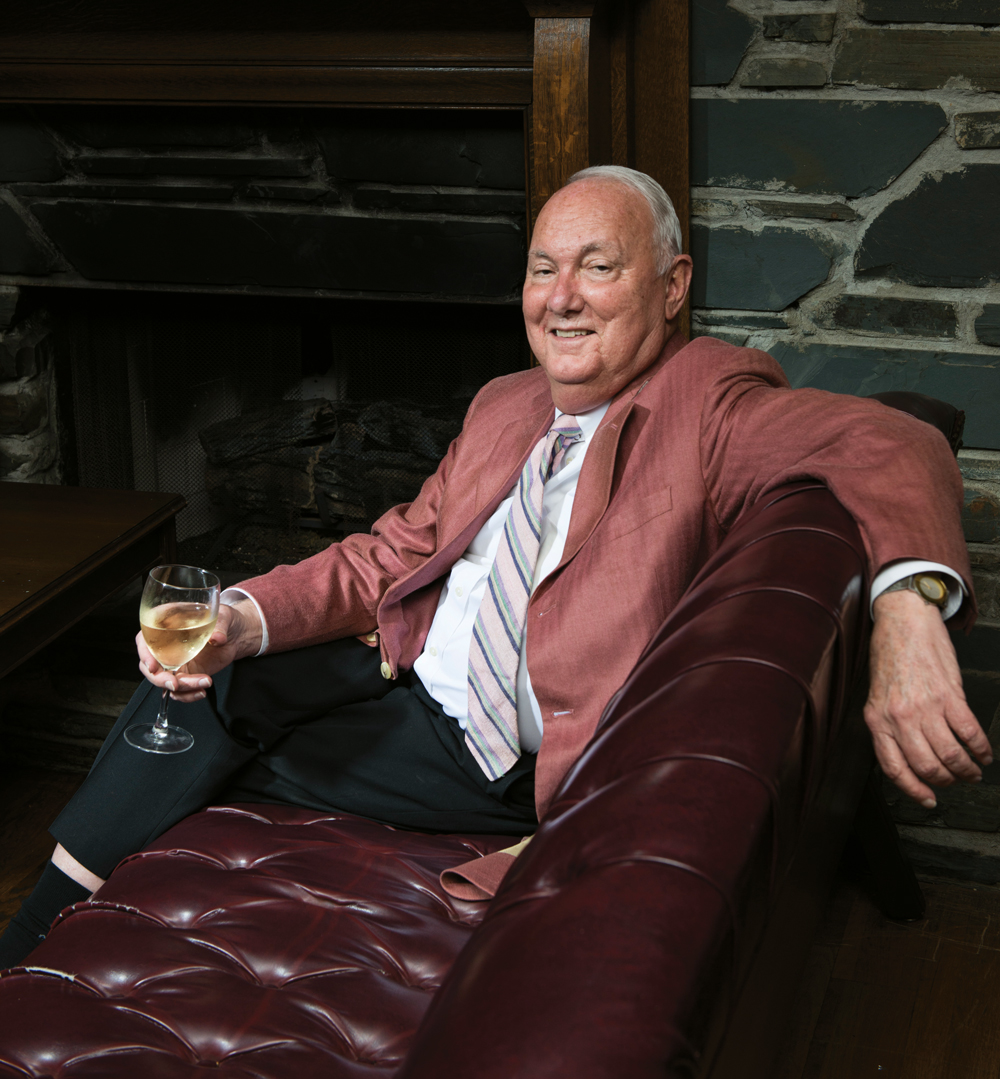
Photograph by Caroline C. Kilgore
Dr. Patrick O’Neal
Regular, Director of Health Protection and Interim Commissioner of Public Health, Georgia Department of Public Health, age 75
In the beginning, the thing that kept me going back to the Colonnade was the fluffy, fresh yeast rolls. I’d eat two or three in a sitting, easily. There was a time when they lost Maria, who makes the yeast rolls, but it just took Jodi a few months to convince her to come back.
The closest thing that the Colonnade reminds me of is a village in England where there is a single pub that everybody goes to. For some of us like myself—I’ve been divorced for many years—it becomes home away from home. I’m there between four and seven days a week.
For the last 10 years of my mother’s life, she lived with me. She became depressed after a car crash, after which she stopped driving—so there was a loss of independence—so she moved in with me. She had a fall and broke her hip, and then she had a series of strokes and was no longer able to walk. I took her to the Colonnade in a wheelchair at least every weekend. She got to know all the folks, she had certain waiters and waitresses that she just thought the world of, and she developed a close friendship with Dr. Robert Gray, who was a retired Presbyterian minister. One night Mom said, “You know Robert, when I die I want you to speak on my behalf back in the banquet room.” She died on July 5, 2015, three months short of 102 years old. About 120 people joined us back in the banquet room. We hired another regular at the Colonnade to play keys, and Robert spoke, and it was a great celebration of her life.
It’s amazing the number of people—employees as well as regulars—there that use me for second opinions, medical opinions. Chef Ryan’s wife is in her third year of breast cancer. She’s 45, they have a six-year-old child, and when she was diagnosed, they brought all of the pathology reports along with the recommendations from their oncologist for me to look at. I’ve continued to follow Carol all along.
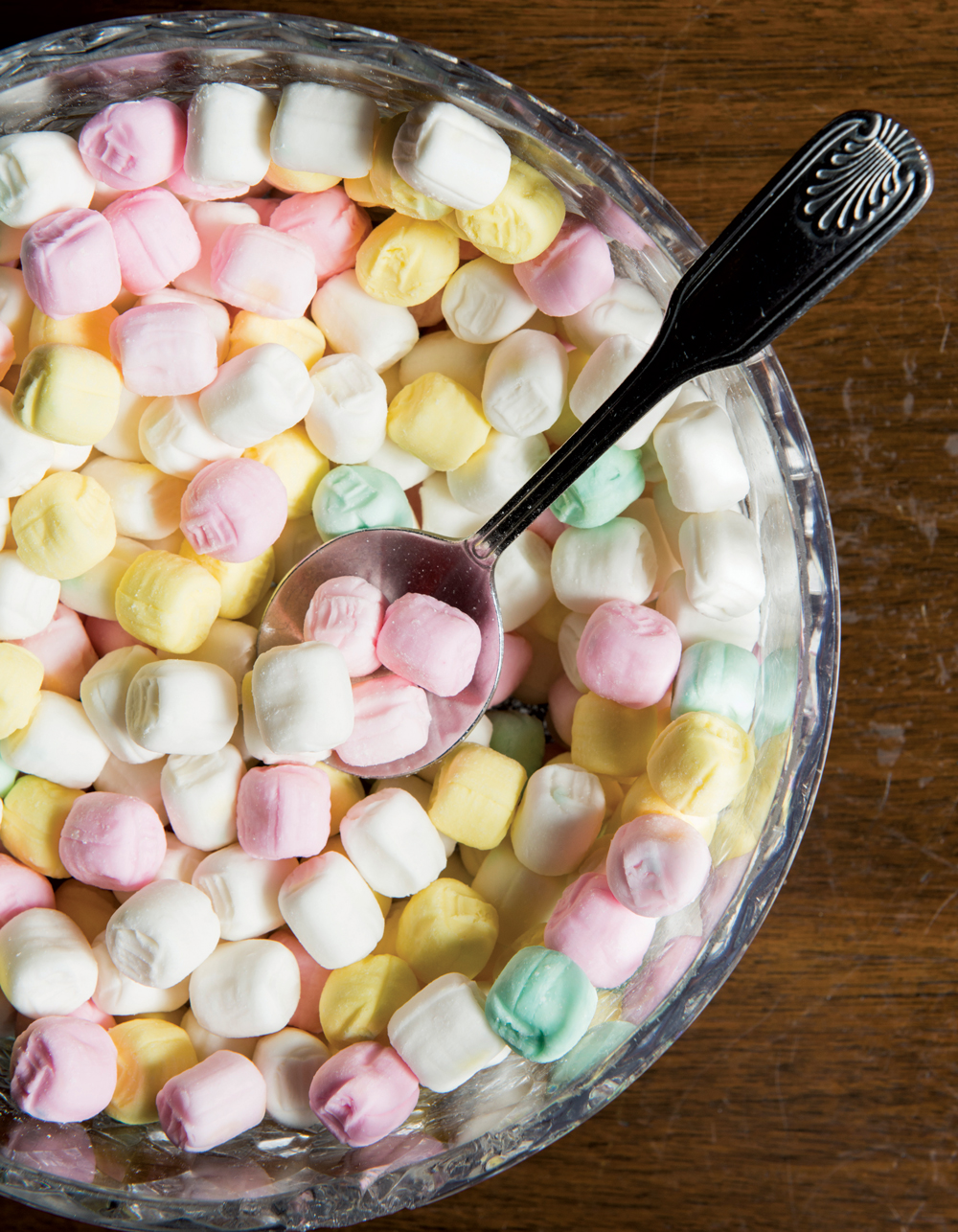
Photograph by Caroline C. Kilgore

Photograph by Caroline C. Kilgore
This article originally appeared in our October 2017 issue.













